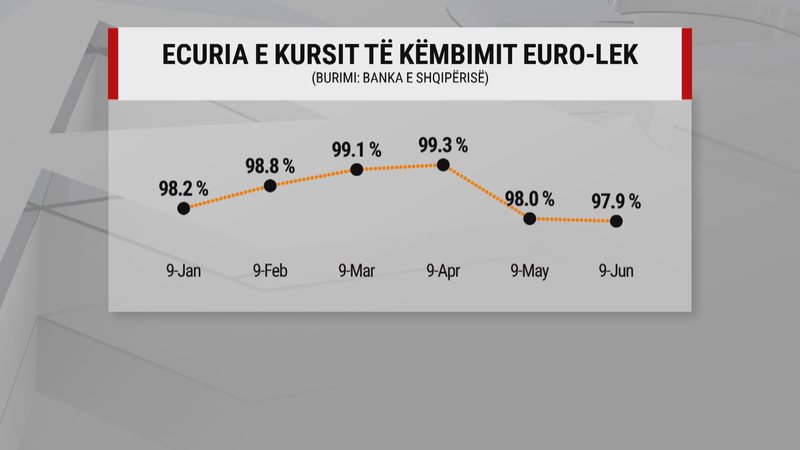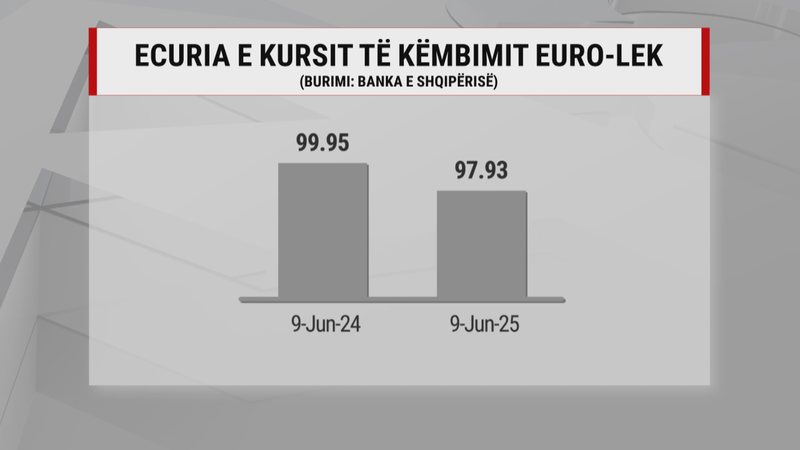From the throne of glory, in the shadow of the “Superlek”. The Euro, the golden currency of European dreams, years ago proudly ruled over every transaction, from the alleys of popular markets to the largest construction contracts. In the eyes of Albanians, the Euro was not just a currency...it was a guarantee, prestige, status. But today, it is no longer the charm it once was. Pale in exchange rates, powerless in the hands of the immigrant, the Euro is living its darkest days.
"To some extent this would be expected. For as long as we use the euro more than the lek, there would certainly come a day when its 'death' would occur," Dritan Vakaj, head of the Foreign Exchange Association, tells A2 CNN.
Time, like any regime, has its days numbered. And today, the euro no longer walks on the red carpet in the Albanian foreign exchange market. With its head bowed, it is sold for less than 98 lekë. This is the lowest level not only for this year, but since 2088 when the European currency entered Albania.

"The increase in remittances from emigrants, the massive influx of foreign tourists bringing in foreign currency, foreign investments denominated in euros, and the lack of demand to buy foreign currency for imports - all have contributed to this sustained depreciation of the euro. All this is happening while the Bank of Albania intervenes in the market to buy foreign currency and avoid an even more dramatic decline," Vakaj emphasizes for A2 CNN.
The Bank of Albania is trying to keep it alive. It intervenes. Purchases. Signals. But the market is unforgiving: Compared to June of a year ago, the euro has lost over 2 points.

"This is not just an exchange rate crisis. It is a paradigm shift. A new time where the lek is being given dignity. A new reality where the euro no longer scares, but equalizes. A world where those who get paid in lek win... and those who get paid in euros lose," adds Vakaj.
The Euro is rapidly shrinking, facing a new Albanian reality, where the power of the local currency is gaining confidence and independence. But it remains to be seen whether this is a temporary end, a new chapter for the lek, or simply an episode in the cycle of monetary fluctuations that characterizes markets in transition. (A2 Televizion)













